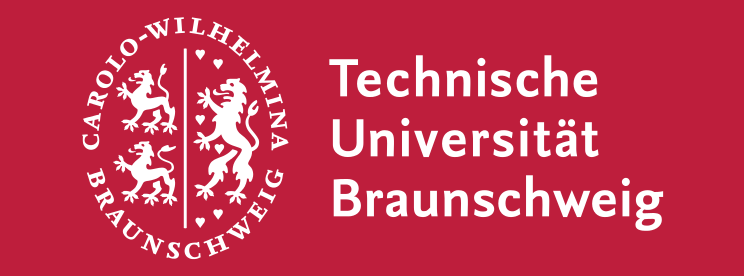Research initiatives in hybrid-electric/sustainable aviation typically address only a single vehicle or single vehicle class. However, it can be expected that for novel propulsion and energy solutions to reach a sufficient maturity level an approach not too different from the early days of aviation could be followed: starting small to prove a technology and gradually scaling it up to larger and larger classes of vehicles. Therefore, it is important to sketch a landscape of technologies and identify areas suitable for scaling, as well as limitations or challenges for development.
CHYLA (Credible HYbrid eLectric Aircraft) aims to contribute significantly to the overall research and development in sustainable aviation by providing exactly this; Landscape of opportunities, challenges and limitations for application of key radical technologies in terms of scalability across different vehicle classes (General Aviation, Commuter, Regional, Short/medium range and Long range large passenger aircraft), where the credibility (uncertainty) of underlying technology assumptions is modelled as an explicit factor in an MDO (multidisciplinary design optimization) approach. In CHYLA we introduce the concept of “credible aircraft design”, which refers to the influence of the uncertainty in the assumptions behind the design to quantify how realisable, or how credible, the design is.
Project objectives
The overall objective of CHYLA is to deliver an overview of opportunities, challenges and limitations of hybrid-electric technology applications and the ‘switching points’ associated to scaling such technology applications between different vehicle classes. We will quantify the uncertainties in assumptions underlying the application of these technologies. Additionally, the impact of solutions will be assessed in terms of operational viability, economics and certification. This results in the following objectives:
-
In CHYLA, novel energy systems are applied to aircraft configurations and optimized to identify optimum configurations for HEA in five different classes, i.e. 1) light aircraft - General Aviation, 2) commuter aircraft, 3) regional aircraft, 4) short-medium range and 5) large passenger aircraft.
-
“We will develop a physics-based energy network for conceptual aircraft design aimed at novel propulsion systems that is capable of modelling various hybrid electric powertrain architectures”
-
A method is developed for “credibility-based multidisciplinary design optimization” (MDO), which will be applied to hybrid electric aircraft in order to assess the impact of the uncertainty/credibility of technology scenarios when applied in overall aircraft design. In order to do this, credibility is determined through uncertainty quantification of the underlying assumptions via the construction of probability density functions for different technologies.
-
Operational analysis, through a fleet allocation and network analysis on a regional airline network is performed using the designed hybrid and electric aircraft. Aditionally, a requirements analysis for airport infrastructures required to operate these vehicles is performed, in combination with analysis of safety, reliability and regulatory (certification) aspects
-
The above-mentioned objectives will be used to investigate the scalability of technologies, based on state-of-the-art and forecasted technology scenarios.
Scalability assessment is performed in 4 stages:
1. Qualitative – expert opinion: “Matrix of Technologies” to reduce the design space to feasible combinations
2. Baseline designs: “Areas of Interest” to sample the design space and perform an initial down selection on the most interesting technology applications
3. Credibility-based MDO & design sensitivities to improved the credibility of technology application and asses the design sensitivity to power control parameters of the power train
4. Operations and economics assessment in an airline network
In order to come up with cross-vehicle class scalability assessment
In this light, scalability is understood as the feasibility of next generation key technologies when applied to different vehicle classes. This links strongly to the identification of switching points. Opportunities/Limitations are expected for different technologies when these are applied to vehicles of different scale (classes).
This deliverable presents the results and comparison of the reference aircraft that form the baseline designs for the CHYLA design studies. Reference aircraft are designed and compared to values from literature, before designing the CHYLA baseline aircraft based on the defined TLAR. Additionally, the design methods are described. Reference data used for the analysis has been collected from various sources and is archived together with the raw data from the aircraft design studies for reuse in the other CHYLA design campaigns and scalability assessment.
General information:
- Overall budget: € 837 328,75
- Duration: 12/2020-05/2023
- Coordinated by Technische Universiteit Delft
- This project has received funding from the European Union's Horizon 2020 research and innovation programme under grant agreement No. 101007715.


Project Partners

-
Institute for Electrical Machines, Traction and Drives
-
Institute of Aircraft Design and Lightweight Structures
-
Institute of Jet propulsion and Turbomachinery
-
Institute of Flight Guidance
-
Department of Aeronautics and Astronautics

TU Delft/Aerospace Engineering/FPP
- Aircraft design
- Propeller aerodynamics
- Propulsion – airframe interaction & integration
- MDO/KBE
- Turbomachinery
TU Delft/Aerospace Engineering/ATO
- Airline operations planning and optimization
- Maintenance and support

TU Braunschweig/Institute for Electrical Machines, Traction and Drives
- Electric drive systems
- Power electronics
TU Braunschweig/Institute of Jet propulsion and Turbomachinery
- Propulsion systems
- Turbomachinery
TU Braunschweig/Institute of Flight Guidance
- Airtraffic management
- Ground (support) infrastructure

University of Southampton/Department of Aeronautics and Astronautics
- Multidisciplinary Design Optimization
- Aircraft Design
